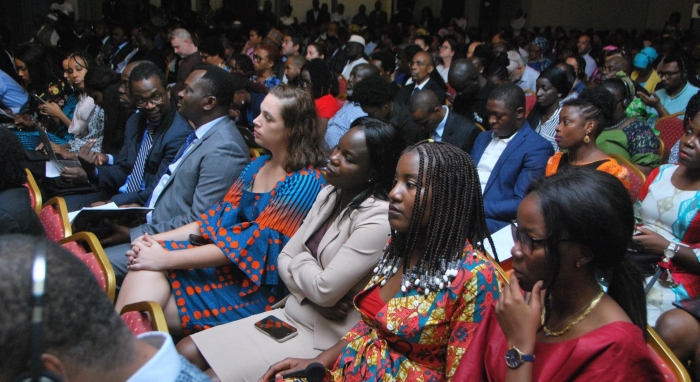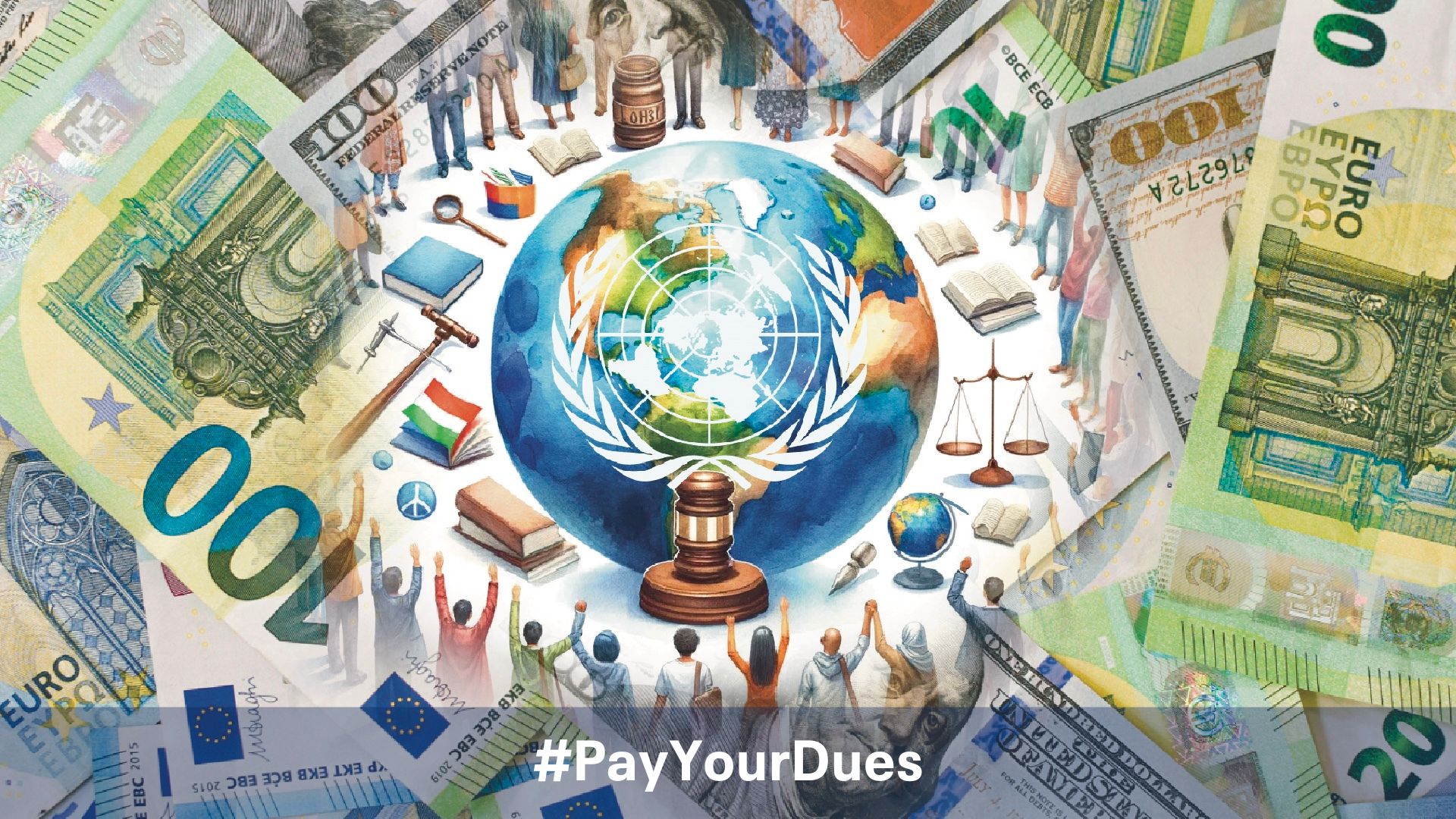The situation of human rights, democracy and rule of law in Africa
During the first day of the Forum, the human rights situation in the five African sub-regions was addressed. All the panelists acknowledged that the Covid-19 pandemic has amplified long-standing human rights concerns in the continent, and that several governments have misused Covid measures as a pretext to steer their abusive political agenda.
In Central Africa, the panelist put the accent on the deterioration of civic and political space, in particular in those countries where elections were held. In Congo, the National Human Rights Commission, as well as NGOs, did not receive accreditation to observe the elections. Limitations to the access to information and of freedom of association and peaceful assembly were noted, along with the intensification of the targeting of human rights defenders, journalists and activists.
In Eastern Africa, violations of freedom of opinion and expression, information, association, and peaceful assembly have escalated. In Djibouti, elections completely lacked credibility, and were carried out in a restrictive political environment, with harassment of political opponents and constraints on press freedom. In Ethiopia, some positive steps towards justice and accountability have been taken with the announcement, in March 2021, of a joint investigation by the Office of the High Commissioner for Human Rights (OHCHR) and Ethiopia’s National Human Rights Commission into the atrocities committed in the Tigray region.
In Northern Africa, governments have been using the state of emergency to restrain the voice of civil society. In Algeria, Egypt and Tunisia, peaceful protesters manifesting their legitimate views have been met by excessive force by law enforcement officials. Furthermore, the enactment of specific legislations that have the potential of further hampering the rights to freedom of expression and association, represents a growing concern in Morocco and Egypt.
In Southern Africa, some encouraging developments were mentioned. For instance, Angola has adopted a law to promote and protect the rights to sexual orientation and gender identity and has decriminalised same sex-marriages. In spite of this, concerns about the lack of freedom of expression and association remain. In addition, the panelist highlighted the continued abuses carried out by police forces in South Africa, and growing concerns of gender-based violence and violence against LGBTQ people and migrants, exacerbated by the pandemic.
In Western Africa, freedom of association and peaceful assembly is restricted. In Benin and Guinea Bissau, the police forces have deployed excessive force to obstruct and disperse peaceful protestors manifesting against the Covid-19 restrictions. Furthermore, gender-based violence and forced marriages are still frequent.
Status of implementation on the African Commission’s decision on the rights of the Endorois indigenous people of Kenya
On 13 April 2021, the NGO Forum met to discuss the status of the implementation of the African Commission’s 2010 decision 276/2003 on the rights of the Endorois people. The deliberations were led by the African Commission, the Centre for Minority Rights and Development (CEMIRIDE) and the Kenya National Commission on Human Rights (KNCHR).
During the discussion, it emerged clearly that the African Commission’s recommendations to the Kenyan Government on reparations for the eviction of Endorois indigenous people from their ancestral lands in the 1970s for tourism development remain largely unimplemented. Panelists submitted that the Endorois’ right to ownership to their ancestral land has, to date, not been recognised, nor they have received adequate compensation for the loss suffered from their displacement. In addition to this, it was noted that the Endorois have not been consulted over the status of implementation of the Commissions’ decision and that the Kenyan government failed to report on the implementation of recommendations within three months from the notification date.
The Commission’s decision in 2010, by recognising indigenous people’s rights over traditionally owned land, created a significant legal precedent and represented a milestone in the progress of indigenous rights in Africa. The reported lack of progress in this regard risks undermining these constructive steps and to pave the way for future human rights violations.
To read more about the Status of implementation on the African Commission’s decision on the rights of the Endorois indigenous people of Kenya, see.
Shrinking environment for human rights defenders
Although measures enacted to curb the spread of Covid-19 must be proportionate, necessary, temporary and non-discriminatory, speakers recognised that they have been used by governments to quash dissent and further shrink civic space. In this context, human rights defenders carry a heavy burden. During the interest group discussion held on the second day of the Forum, NGOs participants had the chance to describe the challenges that human rights defenders face in their countries, and to make recommendations.
Harassment, intimidation, arrest, arbitrary detention and in some cases extrajudicial killings and enforced disappearance of human rights defenders have reportedly intensified during the pandemic. Against the backdrop of rising infection rates, governments in Morocco, Togo and Sierra Leone have put in place specific laws that threaten freedom of association and of peaceful assembly. In Egypt, the anti-terror law, containing a broad definition of terrorism, has further restricted the already limited space for human rights defenders to carry out their legitimate work. In many African countries, human rights defenders have been jailed for merely expressing their dissent on the measures put in place to limit the spread of the virus. In addition to this, human rights defenders are at increased risk of retaliation, and social networks are systematically used to monitor, intimidate and repress them. Because of the limited access to justice as a result of the pandemic, there is no accountability for such violations, and they often go unpunished. With the surge in arrests and arbitrary detention of activists and human rights defenders, effective decongestion measures in prisons and pre-trial detention are necessary, now more than ever. Most of the African prisons have historically been overcrowded, hence incapable to maintain social distancing and to provide basic sanitation to detainees, putting them at high risk of contracting the virus.
To conclude, several African countries joined voices to demand the adoption of laws to promote and protect the rights of human rights defenders, and to put national legislations in line with the principles enshrined in the African Charter and with other international human rights instruments. While we witness Covid measures being used as means to restrict civic space, the call for additional steps to create an enabling and safe environment for defenders is extremely timely.
Recommendations
- Enforcement of Covid-19 measures in Africa
- Shrinking civil space and human rights defenders
- Economic, social and cultural rights in Africa (with a focus on the right to health)
- Role of youths in the implementation of the African Union’s Agenda 2063
- Impact of Covid-19 on elections in Africa
Country resolution
- Resolution on the human rights situation in Benin
Thematic resolution
- Resolution on the abolition of the death penalty




